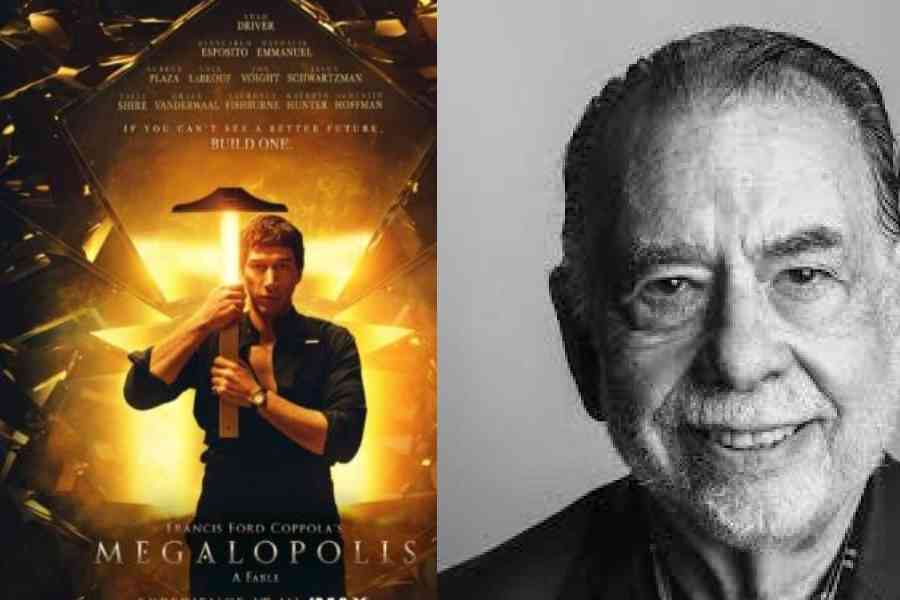Hollywood — through films like 2001: A Space Odyssey to The Terminator — has been predicting that some kind of artificial intelligence bot will take us out at some point. It has managed to deliver a punch to the trailer of Francis Ford Coppola’s 138-minute magnum opus, Megalopolis.
Lionsgate, the distributor, has withdrawn the film’s trailer that was meant to be a playoff on the idea that critics are not always the best judges by showing a series of negative reviews of the 85-year-old filmmaker’s past offerings before cutting to shots of Megalopolis, Coppola’s first film since Twixt in 2011.
The quotes from the trailer are apparently AI generated and the person responsible
for the materials, Eddie Egan (he earlier held executive posts at STXfilm and other major studios), has been removed from the film’s marketing team.
The now-taken-down trailer mentioned that The Godfather (1972) was “diminished by its artsiness”, according to The New Yorker, which is not found in Pauline Kael’s original review. Vincent Canby never said Apocalypse Now (1979) was “hollow at the core”. The late Roger Ebert’s review of Bram Stoker’s Dracula (1992) didn’t say the film was “a triumph of style over substance” (though he did say that about Tim Burton’s Batman).
Lionsgate has said in a statement: “We offer our sincere apologies to the critics involved and to Francis Ford Coppola and American Zoetrope (founded by
Coppola and George Lucas) for this inexcusable error in our vetting process. We screwed up.”
The sci-film, which is set to have a theatrical release on September 27, is something Coppola has spent several years on and also $120 million of his own money. The film starring Adam Driver, Giancarlo Esposito, Nathalie Emmanuel, Aubrey Plaza and Shia LaBeouf has been highly anticipated since it had its Cannes Film Festival debut this year where it attracted mixed reviews with The Guardian (actually) calling it “megabloated and megaboring”.
It’s easy to see how the film’s marketing team has goofed up. Hallucinating on the part of generative AI models has been documented and even companies that make AI products end up making factual errors in their presentations. For example, Humane, when it presented the demo of its AI Pin device last year, made an error about where you could have watched April’s total solar eclipse. Google, too, made a factual error when it showcased its AI chatbot Bard in February last year (it was asked “What new discoveries from the James Webb Space Telescope can I tell my 9-year-old about?”).
Former President Donald Trump’s lawyer Michael Cohen admitted to citing fake, AI-generated court cases in a legal document that made it to a federal judge while music group Fugees rapper Pras Michel lost a federal case when his lawyer submitted an AI-generated closing argument.
It’s unclear whether Coppola’s marketing team used ChatGPT or other tools AI tools for “research” while making the trailer.
This is not the first time a studio has been embarrassed over film critic quotes. In the early 2000s, Sony reprimanded two executives for their part in concocting quotes from a fictitious movie critic — David Manning — to promote a few films in advertisements.










